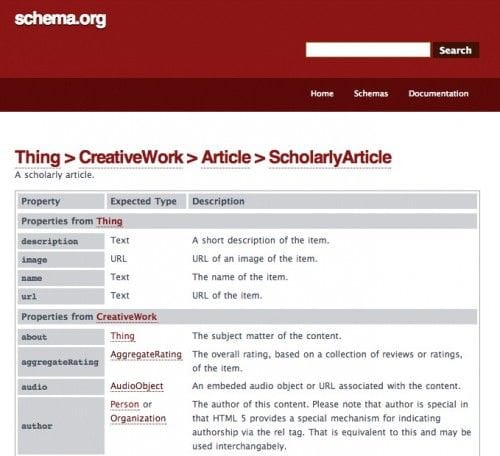Last Thursday the search engines Google, Bing and Yahoo announced schema.org, a new initiative for structured data markup on the web. Websites that use this schema to markup their data (more than 100 data types are supported) will make it easier for the three largest web search engines to find their content. Schema.org uses microdata, not microformats or RDFa, according to the FAQ this was a pragmatic decision.
Schema.org also defines the ScholarlyArticle, but unfortunately this data type doesn’t add any properties beyond those of the parent Article (e.g. the Digital Object Identifier). The Person data type is also interesting (and uses a professor as an example), but for example doesn’t include an isAuthor relationship.
It will be interesting to see whether future versions of the schema.org standard will have better support for scholarly content, and how well this microformat can be integrated into our efforts to create Scholarly HTML. And how quickly scholarly publishers and other providers of scholarly content will adopt this new standard., which in its current form already is a big improvement over plain HTML.
Update (6/7/11): Google today announced support for authorship markup, either via the schema.org format or using the rel attribute.


